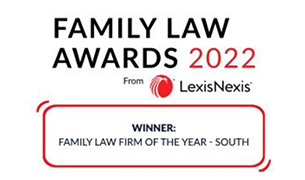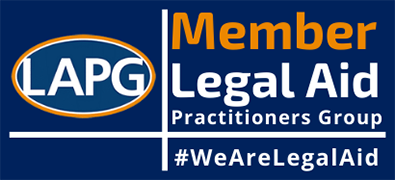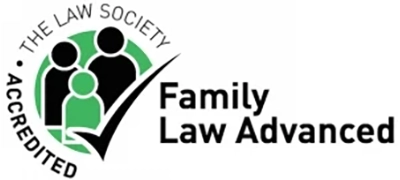
Our managing director and qualified mediator Norman Hartnell explains what mediation is and why family mediation is worth consideration.
Mediation is a process by which an independent qualified mediator works with a couple to help them come to a mutual agreement about the practical issues they need to address based on an agenda set by the couple themselves.
What are the main features of family mediation?
The main features of family mediation are:
- Mediation is a voluntary process —it is open to the parties to decide to leave mediation at any stage, they do not have to continue in mediation if they do not wish to
- Decision making rests with the couple, not the mediator. It is the mediator’s role to manage the session and the gathering of information, the identification of options and the weighing up of each of the options from the perspective of each of them to help the couple identify the most appropriate outcome for them
- The mediator can provide information, much like a text book, which is neutral in character. The mediator does not provide legal advice to either party, but can alert both parties to the need for independent advice if the proposals being discussed within the mediation fall outside the normal range of outcomes which the mediator would expect to be approved by a court
- Family Mediation is confidential—the parties are free to discuss their positions openly knowing that the mediator will not report their discussions to the court if the mediation breaks down due to the approach to confidentiality set out in the agreement to mediate (which both parties and the mediator sign). Part of the agreement to mediate which will be signed before the process begins specifically acknowledges an agreement not to call the mediator to give evidence or to produce their notes, much like the confidentiality of a therapist. This is subject to the proviso that in the event that there is any suggestion of harm to any child or adult, the mediator alongside other professionals working in this area, has an over-riding safeguarding duty to protect the vulnerable and draw the attention of any risk to the relevant protective authorities. This is also subject to the court directing the disclosure of any information, although the court will be cognisant of the necessity of confidentiality as an integral part of the process.
- A distinction is drawn between an open “Financial Summary” containing financial information (which is open and can be produced to third parties such as the court) and a “Memorandum of Understanding” containing the outcome proposals which are the result of negotiations conducted in the mediation, as opposed to details of the negotiations themselves (which are without prejudice, which will nevertheless be shared with any lawyer acting for each of the parties, but who has to treat any such information as confidential and not to be disclosed to any third party)—the open information can be released into the court process if the mediation breaks down to avoid the duplication of costs in producing the same information in another context. There may also be produced an “Interim Summary” in one or other of the above forms as a working document within the mediation.
- In relation to the Financial Summary, the mediator will prepare a schedule of assets and some options together with net-effect schedules to go through with the parties during the course of the mediation—the parties will then see which option is likely to be the most appropriate for them and discuss its terms to try and reach a mutual settlement
- The parties consider options on a “What if” basis and “reality test” them to see whether or not they are workable for both
- No legally binding agreement is made in a mediation—the mediator will set out the proposals identified by the parties in the Memorandum of Understanding which is then released to the parties’ solicitors for them to prepare a consent order if a full agreement has been reached having taken legal advice
- Working with third parties. If both parties agree, and both wish to employ a third party who is a trusted advisor to them both and who can assist by providing impartial information. This may happen for example if both parties have used the services of a trusted independent financial adviser who can not only provide information but also assist in the working through of the implication of any options discussed on a neutral basis
What are the advantages of family mediation?
Time-table
The parties are able to take the mediation as quickly or as slowly as suits them. Some people feel that they want to talk through issues together over a number of sessions whereas others would prefer to deal with the process expeditiously. The parties will have the chance to discuss pacing with the mediator and work out appropriately the number of sessions they need to have over what timeframe. Mediation is often seen as being much less acrimonious than litigation. The parties will work together to come up with suggestions and solutions with the assistance of a mediator. They will present information in an open and transparent way that they are both able to fully understand. The mediator will cross check the disclosure to see if there are any gaps. It shouldn’t be assumed that disclosure is less rigorous because the parties are attending mediation. If anything, mediation facilitates the possibility of seeking as much or as little disclosure as the parties want, subject to receiving sufficient understanding of their finances.
Cost
Mediation is often cheaper than other process options. The mediator’s hourly rate is essentially divided by two, although often if there is a financially stronger party they may be willing to pay for the sessions without that in any way impacting on the neutrality of the mediator. Most sessions aim to conclude within 1.5 hours. There are, however, additional costs outside of the mediation process in the preparation for the sessions and the writing up of outcomes, such as considering disclosure, preparing asset schedules and preparing net-effect schedules, and separate costs for the solicitors representing the parties outside of the process that need to be factored in.
Outcome
The outcome is what the couple themselves consider to be fair to each of them and to the other, rather than relying on the view of a third party, be that judge, arbitrator or even lawyer. That means that whilst there is normally and cost and a benefit to each of them, the outcome is considered by both to be balanced. This should result in both parties feeling that they have been heard and had their needs taken into account in any outcome, helping them emotionally to accept the outcome rather than having it imposed on them.
What next?
Norman has spent over 40 years specialising in Family Law and was one of the country’s first family mediators. If you are considering mediation or would like advice about the best course of action for your personal situation please do get in touch. Telephone 01392 421777 or email [email protected].
Need some advice? Get in touch today
"*" indicates required fields
The information submitted here is used and stored for the purpose of replying to the enquiry. For more information on how we process data please visit our Privacy Policy.










